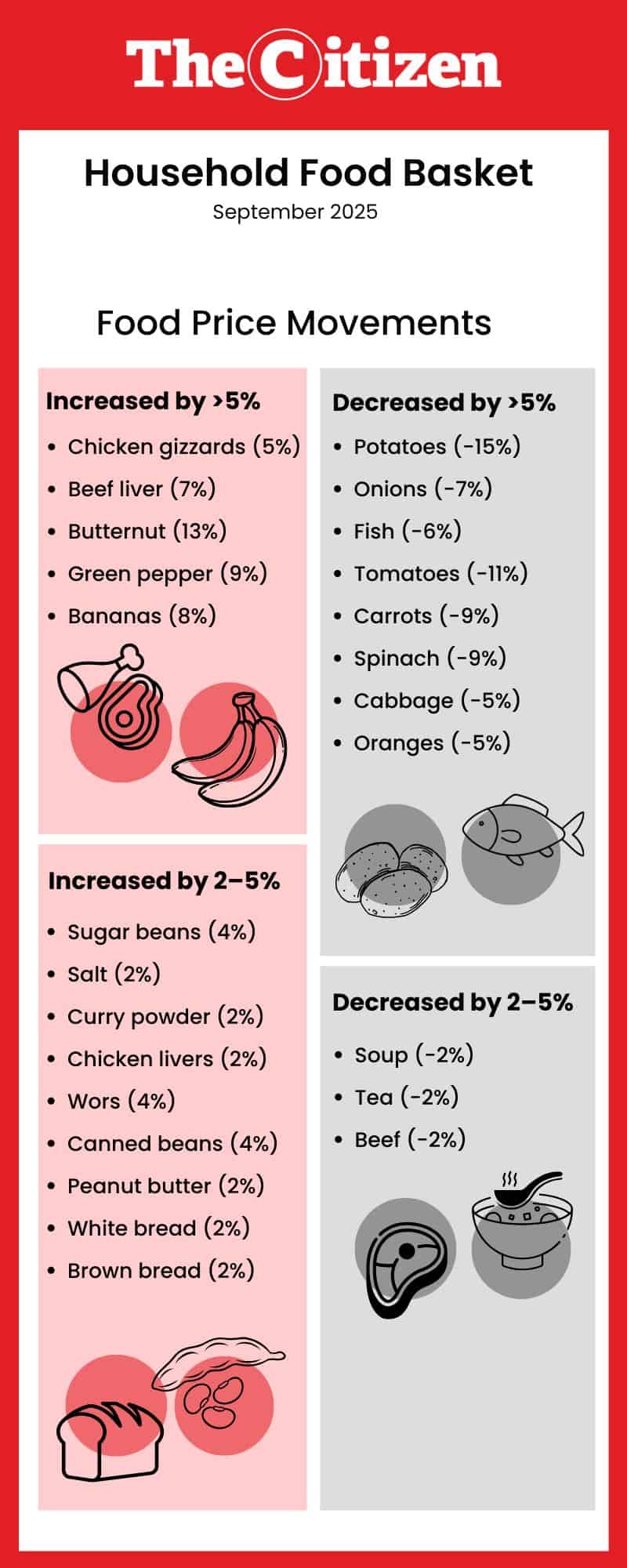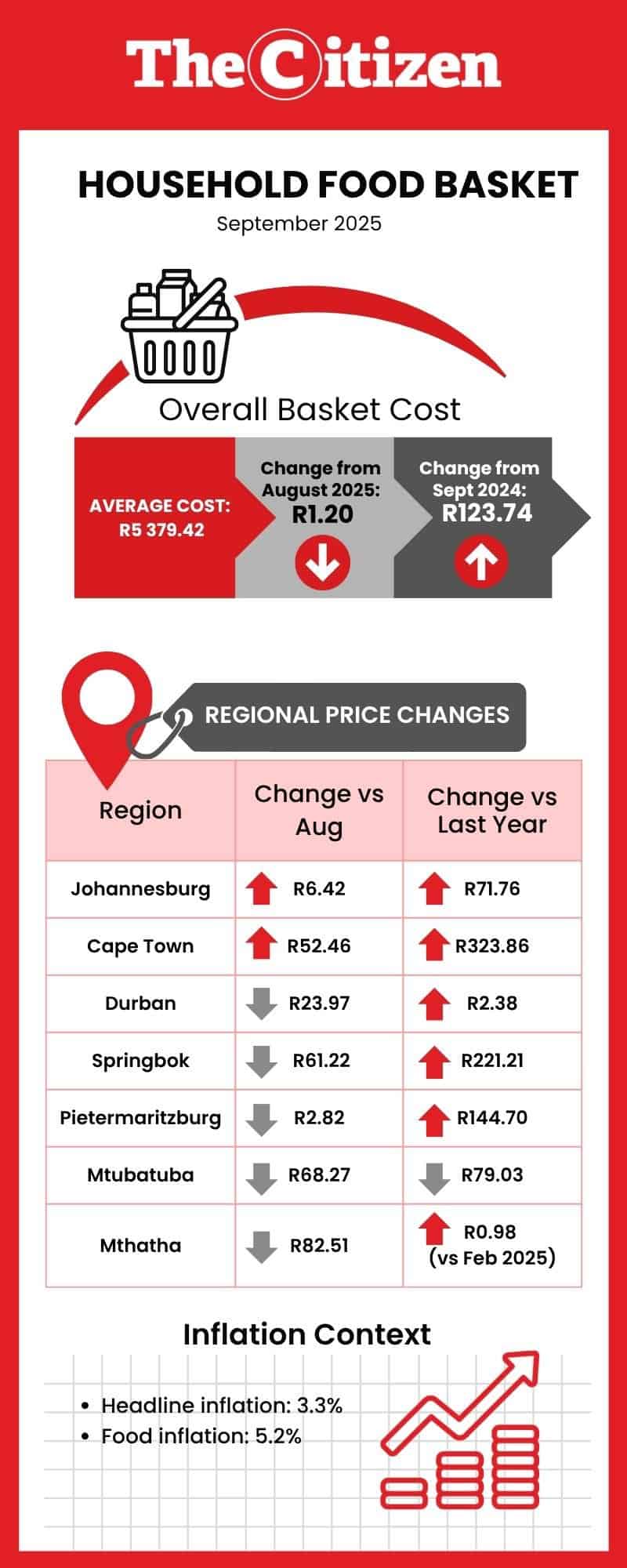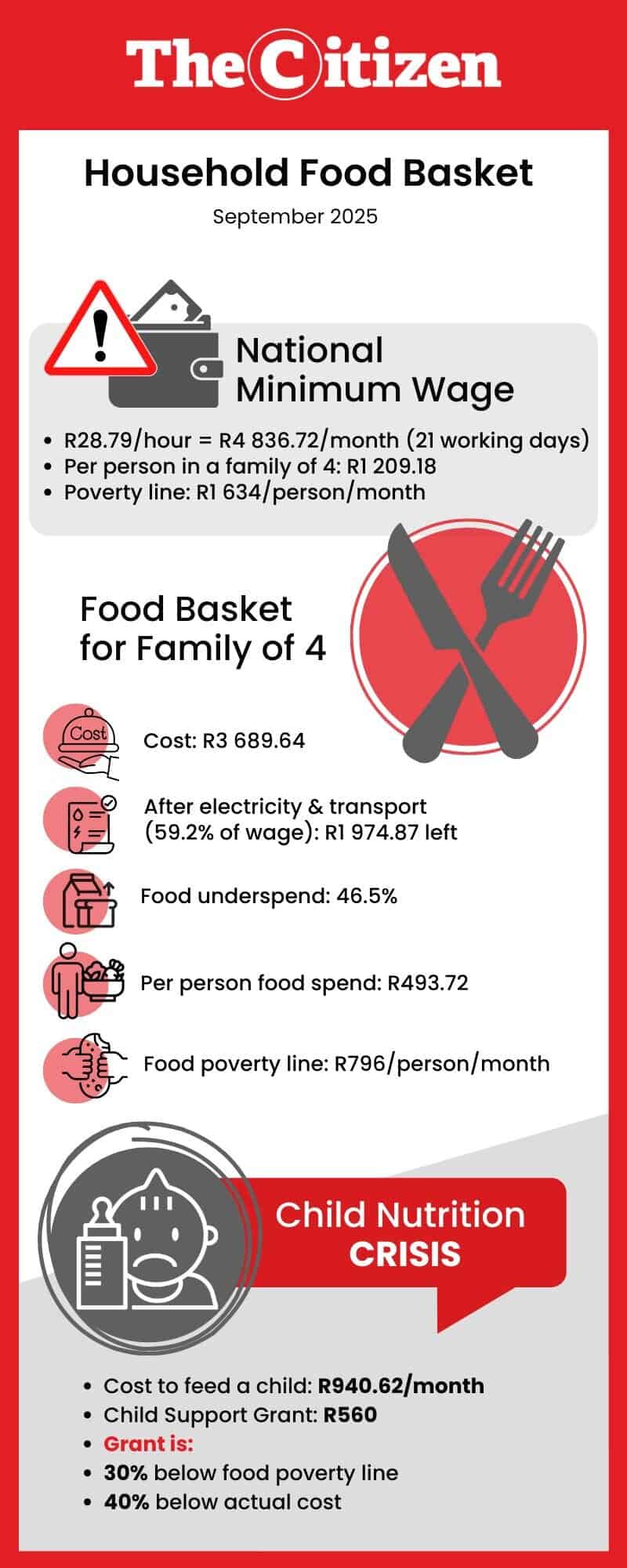Although the household food basket was slightly cheaper in September than in August, low-income consumers still go to bed hungry.

The household food basket survey showed some small decreases in places and for some products, but the overall price is still considerably higher than a year ago, making it difficult for low-income South Africans to afford nutritious food.
According to the survey for the Household Food Basket in the Pietermaritzburg Justice and Dignity Group’s Household Affordability Index, the average cost of the household food basket was R5 379.42 in September, R1.20 less than in August, but R123.74 more than in September 2024.
The index tracks the prices of 44 basic foods from 47 supermarkets and 32 butcheries in Johannesburg, Durban, Cape Town, Pietermaritzburg, Mtubatuba and Springbok. The survey is conducted by women from low-income areas at stores where they shop for their families.
In September, the prices of 21 of the food items in the household food basket increased, while 23 food items cost less. This chart shows the food price movements in September:

ALSO READ: Lower diesel price unlikely to ease pressure of food prices for hungry consumers
Different prices in different regions
The average price of the household food basket also differs from region to region. In September, only the household food baskets in Johannesburg and Cape Town cost more.
This chart shows how the average price of the food basket changed from region to region:

Statistics SA’s latest Consumer Price Index for August 2025 shows that headline inflation was 3.3%, while food inflation was 5.2%.
ALSO READ: Inflation at 10-month high due to beef prices, but coffee drinkers will be happy
Household food basket too expensive for minimum wage earners
Workers who earn the national minimum wage of R28.79 per hour, R230.32 for an 8-hour day and R4 836.72 for an average 21-day working month, must use their wages to buy food for an average family of four and still pay for everything else, such as electricity and transport.
In September, with 21 working-days, the maximum national minimum wage for a general worker was R4 836.72. Dispersed in a worker’s family of four people, each person gets R1 209.18 per person, far below the upper-bound poverty line of R1 634 per person per month.
In September, the average cost of a basic nutritional food basket for a family of four was R3 689.64. The group calculates, using Pietermaritzburg-based figures for electricity and transport and the average figure for a minimum nutritional basket of food for a family of four, that electricity and transport will take up 59.2% of a worker’s wage.
They only buy food after paying for transport and electricity, leaving R1 974.87, for food and everything else. This means that in September, the group calculates that workers’ families will underspend on food by a minimum of 46.5%.
ALSO READ: Modest decline in essential food prices but savings not always passed on
Not all nutritious food makes it into the household food basket
Mervyn Abrahams, programme coordinator, points out that in this scenario there is no possibility of a worker being able to afford enough nutritious food for her family. If she spends the entire R1 974.87 to buy food, it will provide R493.72 per person per month for a family of four. This is again far below the food poverty line of R796 per person per month.
The situation is even worse for people who care for children. In September, the average monthly cost to feed a child a basic nutritious diet was R940.62, R2.51 less than in August and 90 cents less than a year ago.
Compare this to the child support grant of R560, which is 30% below the food poverty line of R796 and 40% below the average monthly cost to feed a child a basic nutritious diet (R940.62), and it is clear that low-income consumers still have to go hungry because they do not have enough money for food.

Support Local Journalism
Add The Citizen as a Preferred Source on Google and follow us on Google News to see more of our trusted reporting in Google News and Top Stories.








